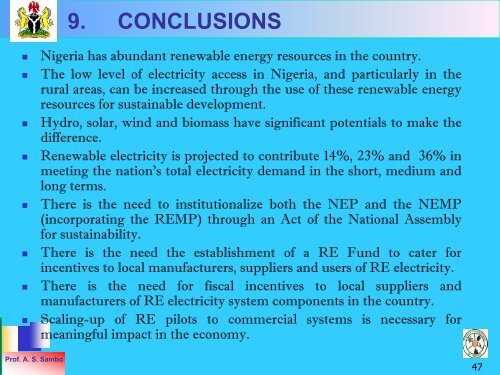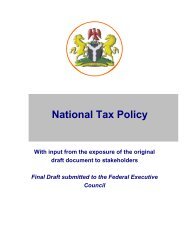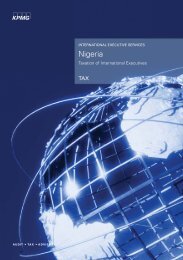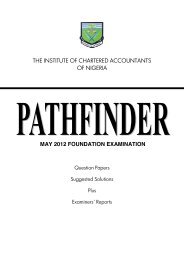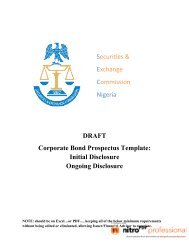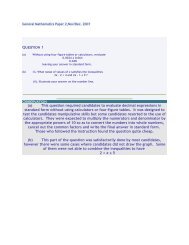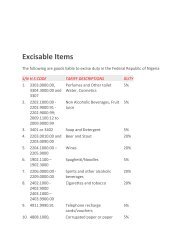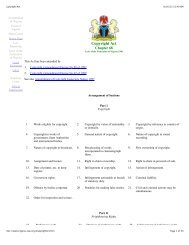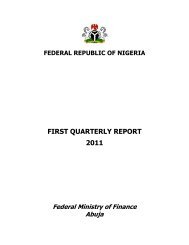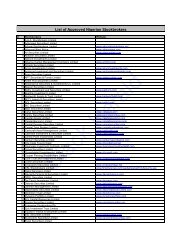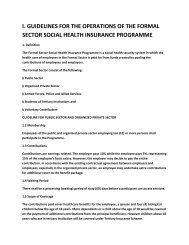View - Energy commission of Nigeria
View - Energy commission of Nigeria
View - Energy commission of Nigeria
Create successful ePaper yourself
Turn your PDF publications into a flip-book with our unique Google optimized e-Paper software.
9. CONCLUSIONS• <strong>Nigeria</strong> has abundant renewable energy resources in the country.• The low level <strong>of</strong> electricity access in <strong>Nigeria</strong>, and particularly in therural areas, can be increased through the use <strong>of</strong> these renewable energyresources for sustainable development.• Hydro, solar, wind and biomass have significant potentials to make thedifference.• Renewable electricity is projected to contribute 14%, 23% and 36% inmeeting the nation’s total electricity demand in the short, medium andlong terms.• There is the need to institutionalize both the NEP and the NEMP(incorporating the REMP) through an Act <strong>of</strong> the National Assemblyfor sustainability.• There is the need the establishment <strong>of</strong> a RE Fund to cater forincentives to local manufacturers, suppliers and users <strong>of</strong> RE electricity.• There is the need for fiscal incentives to local suppliers andmanufacturers <strong>of</strong> RE electricity system components in the country.• Scaling-up <strong>of</strong> RE pilots to commercial systems is necessary formeaningful impact in the economy.Pr<strong>of</strong>. A. S. Sambo47


